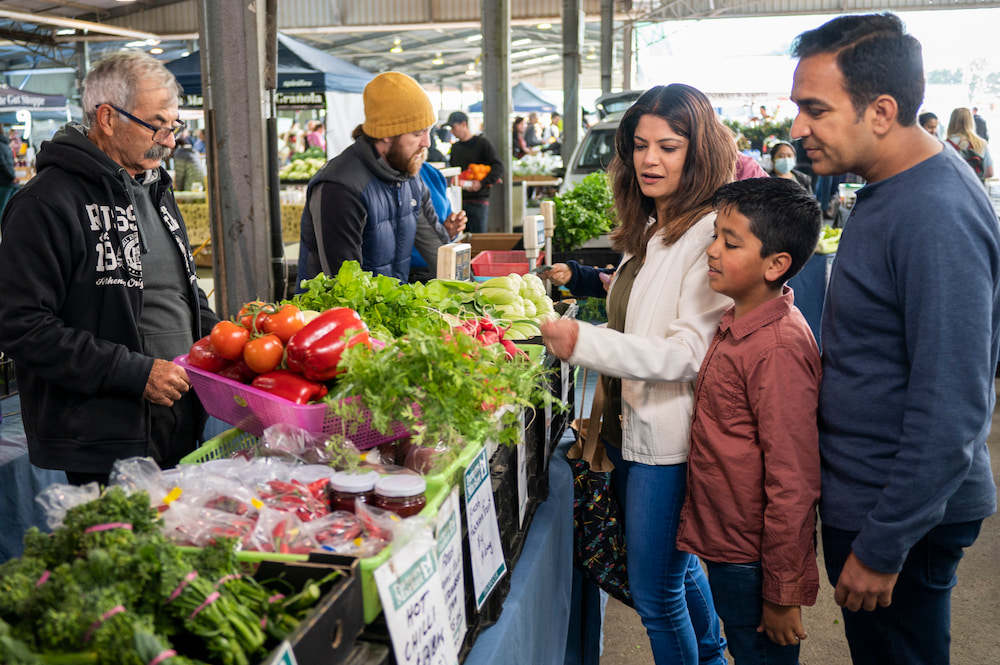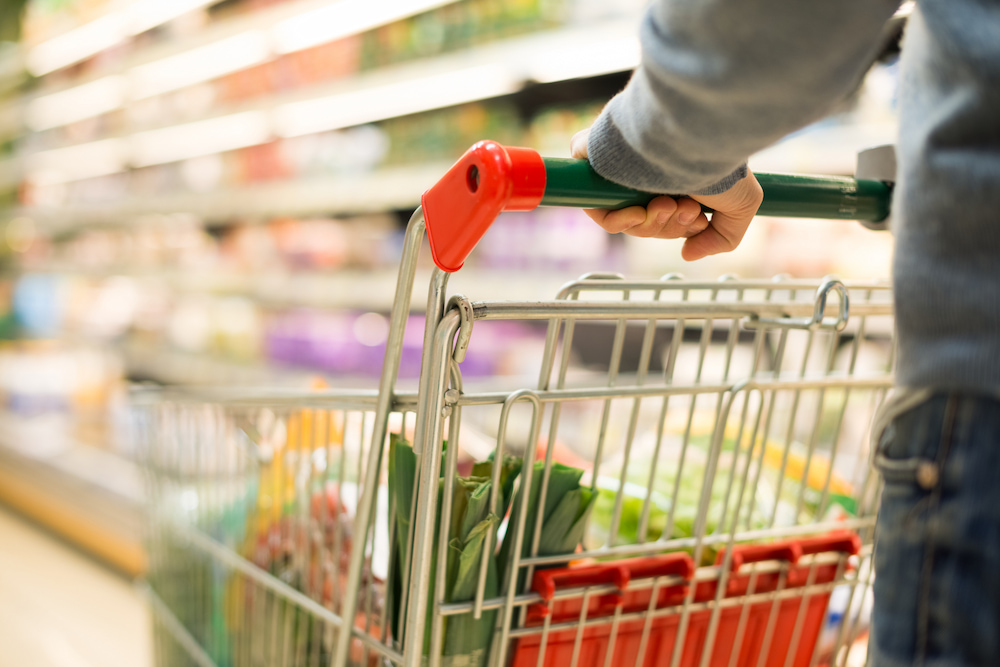The Australian Competition and Consumer Commission (ACCC) will hold a year-long inquiry into pricing and competition in the supermarket sector, including the competitiveness of retail prices and allegations of price gouging, Prime Minister Anthony Albanese announced last week.
“Australians are under the pump, and the cost of groceries is among the biggest concern for many,” Mr Albanese said.
There have been concerns that supermarkets – notably Coles and Woolworths, which control two-thirds of the sector, and reportedly made profits of more than $1 billion last year – are underpaying farmers and overcharging shoppers, the Guardian and the ABC have reported. Zucchinis, for instance, are reportedly being bought for $2.40 and sold for nearly $7 a kilo, while sale prices for cattle and sheep have allegedly dropped between 60 and 70 per cent.
“Many farmers are concerned about weak correlation between the price they receive for their [fresh] produce and the price consumers pay at the checkout,” ACCC chair Gina Cass-Gottlieb said.
“When farmers are selling their product for less, supermarkets should charge Australians less,” Mr Albanese said. “That’s why the ACCC will use its significant powers to probe the difference between the price paid at the farm gate, and the prices people pay at the check-out.”
Deputy chair Mick Keogh said the inquiry would focus on competition between supermarkets, the margins gained on the way through the supply chains, the surge of online retailing in supermarkets, consolidation in supply chains, and the duopoly of Coles and Woolworths.
“There’s been significant growth of the two majors, and it still remains the fact that Australia has got one of the most concentrated supermarket sectors in the world,” Mr Keogh said. “Coles, Woolies just became too strong, too big, too powerful, and they’ve just basically pushed out anyone else who tried to get in their way.”
This is one of five inquiries underway. Professor Allan Fels AO, former chair of the ACCC, is heading the Australian Council of Trade Unions’ inquiry into price gouging and unfair pricing practices. According to him, Woolworths’ earnings on food rose to 6 per cent (up from 4.7 per cent in 2019), and Coles’ earnings on food rose to 4.8 per cent (up from 3.8 per cent in 2019).
In another government-run inquiry, Dr Craig Emerson, economist and former Labor minister, is reviewing the Food and Grocery Code of Conduct, which regulates the conduct of supermarkets towards suppliers. The Senate’s Select Committee on Supermarket Prices, chaired by Greens Senator Nick McKim, is investigating the price setting practices and market power of major supermarkets. And the Queensland parliament will hold a state-level inquiry into grocery prices.
A Coles spokesperson said the supermarket chain welcomed the ACCC inquiry.
“We have worked closely with the ACCC in previous inquiries, and we will do so again. We welcome the ACCC’s examination of the factors that affect prices in the grocery supply chain, and look forward to illustrating how we provide value to our customers and our positive relationships with our supplier partners.”
The spokesperson said the supermarket chain was “working hard to keep groceries affordable for Australian households and families, especially as they face escalating living costs with higher mortgages and rents and increasing expenses like energy and fuel”.
“We are doing this against a challenging environment of high inflation, with rising costs that affect the whole economy, including farmers, suppliers, and retailers, and impact the prices customers pay at the checkout.”
Likewise, Woolworths CEO Brad Banducci said that his chain cared about how cost-of-living pressures affected their customers, and would do whatever it could to help its customers.
“The wonderful truth about supermarkets is we sell, in the order of 30,000 different products, 12 broad categories of very different businesses,” Mr Banducci said. “And we are part of the supply chain of each one of those broad businesses. In the context of each one of those, we try and set what we think is a fair margin.”
However, although Woolworths gave farmers certainty of prices so they could plan, and over time, prices correlated with what the supermarket chain paid farmers over time, the process was not instantaneous; it needed to be seen over a 12-month to two-year period, Mr Banducci said.
“If I talk to red meat, there’s a huge lead in lag time from the point in which an animal is bought or sold [to] when it gets on the shelf, and many other costs…” Mr Banducci said.
“But you can’t imagine a sale price that [is] being adjusted today and the price in the store the day after. I wish life was that simple. It isn’t.”
Fruit and vegetable prices, however, could be adjusted within a week or two. However, both meat and fruit/vegetable prices were in deep deflation right now, Mr Banducci said, since September.
“So, there are material price reductions going through to consumers. But what we are always trying to balance is, do the right thing for the consumer, pay a fair price to the supplier, in particular, if it’s an Australian farmer, make sure we do the right thing for the 180,000 people who work for us and they have meaningful careers and take home income, and also balance that against our shareholders, who are invariably Australian super funds… We might not every day, but certainly our goal.”
Similarly, Coles had kept price inflation in its supermarkets below the rate reported by the ABS for the past 16 quarters, the spokesperson said. Price inflation in Coles’ supermarkets declined to 3.1 per cent for the July-September quarter, down from 6.2 per cent in the January to March quarter last year. Fresh food (including fresh produce, meat, deli, and seafood) was in deflation of 2.3 per cent during the July-September quarter.
But supermarkets are not the only place to buy groceries; farmers’ markets are an alternative, says Sarah Power, manager of the Capital Region Farmers Market, and their customer numbers have increased since the issue was in the news.

“You see the big supermarkets advertising that they are there for the farmer, they’re advocating for the farmer; now that we’re having a look deeper into this, and we know what or farmers are getting paid, customers are frustrated that they’re being lied to, perhaps; that they’re being misled.”
Indeed, Ms Power said, the Capital Region Farmers Market began for similar reasons to those being discussed at the moment.
“Twenty years ago, there was a small group of local producers here in Canberra, and their experiences were either they couldn’t get into actually sell to the supermarkets because they weren’t selling enough for those guys and be profitable, [or] they weren’t being paid enough to actually make a living off what they grew.”
Now, Ms Power said, the Capital Region Farmers Market allows customers to buy directly from the farmer, and cut out the middleman system and middleman prices. Farmers set their own prices, and all the money goes directly to them – “instead of the 20 cents for a kilo you sometimes hear farmers getting when customers are paying $5 a kilo”.
The produce is also fresher, she states; although produce takes a while to get from the farm to supermarket chains, at the farmers’ market, vegetables are picked on Thursday and sold on Saturday.
Ms Power welcomed the announcement of the inquiry. She would like to see producers getting paid more if they sell into supermarkets, and for supermarkets to be more open about how they set their prices.
“There needs to be awareness of the pricing of foods that we are eating – really getting an understanding of if we buy fresh produce, is that money going to CEOs and shareholders, or is it going directly to the farmers? If we pay a certain price for meat, why are we paying that much when our farmers are getting less than 10 per cent of that actual price? Consumers really need to know that.”



